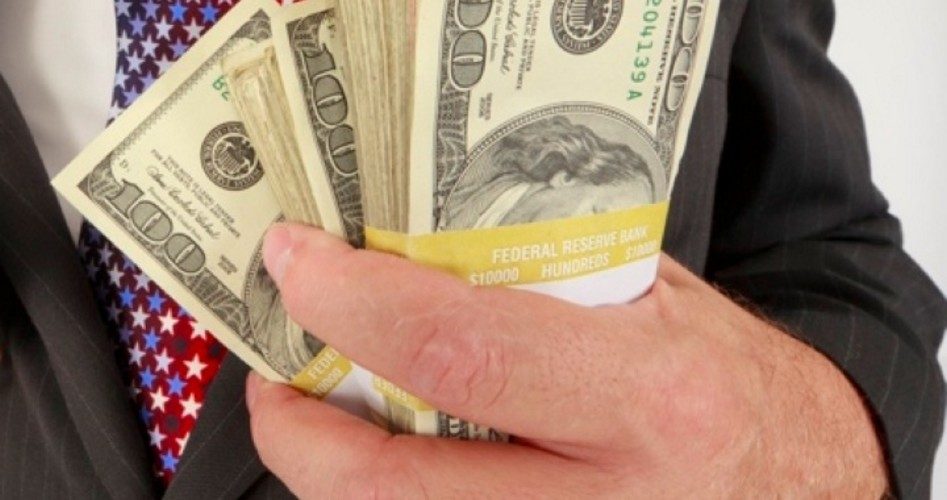
Democrats led the loud public outcry against the Supreme Court decision in the 2009 Citizens United case, which allowed corporations to spend unlimited money on election communications. Democrats and other leftists complained the decision would lead to corporate control of elections and, ultimately, corporate control of the government. The outcry implied the Republican Party was already in the hip pocket of big business, and that the Democrats were the last stalwarts opposing government becoming the dispenser of privileges and subsidies to corporations.
But a careful look at the historical record reveals that while both parties backed crony capitalism with tax dollars long before Citizens United, the Democratic Party has been a far more reliable supporter of crony capitalism than the Republican Party. And it continues to be so.
House Democrats voted in favor of bailing out Wall Street banks with TARP by a margin of 172-63 back in 2008 — a full year before the Citizens United decision. Rank-and-file House Republicans actually opposed the bank bailout 91-108, despite intense pressure by the Bush White House and congressional leaders of both parties (who all voted for TARP).
The TARP vote only strengthened the Republican opposition to taxpayer subsidies for corporations through the rise of the Tea Party movement, which is the only faction of Congress today that offers any serious opposition to corporate subsidies. On May 9, 2012, a majority of Tea Party Republicans voted against a reauthorization of taxpayer-guaranteed loans to big business through the U.S. Export-Import Bank, but most other Republicans — and every single House Democrat — voted to put taxpayer dollars on the line for risky corporate foreign exports.
Every House Republican became a cosponsor of a bill, Rep. Ron Paul’s Federal Reserve Transparency Act of 2012, to audit the Federal Reserve, which engaged in a secret bailout of Wall Street banks amounting to $16 trillion in taxpayer-guaranteed dollars from 2008-10. But most House Democrats opposed the bill, which would merely audit the Fed and expose the bailouts. Rep. Paul’s bill passed overwhelmingly in the Republican-dominated House in 2012, but died in Harry Reid’s Democratic Senate that same year. Indeed, only Tea Party Republicans have been critical of the Federal Reserve’s ongoing efforts to increase the money supply, the so-called quantitative easing, by stuffing an additional $80 billion per month into Wall Street banks and financial institutions. Quantitative easing pushes new dollars into the richest elements of society while devaluing the dollars held by everyone else.
And Democrats were key to backing the Obama administration’s corporate subsidies for “green energy” that resulted in the massive taxpayer losses in the bankruptcy of Solyndra, A123 Systems, and dozens of other companies receiving millions or billions in taxpayer subsidies through grants, loans, or loan guarantees.
Democrats have long publicly excoriated “trickle down economics” — giving taxpayer money to wealthy corporations with the expectation the wealth will “trickle down” to the poor — but the corporate subsidies they’ve backed over the years have proven that congressional members of the Democratic Party have been by far the most reliable practitioners of the type of “trickle down” economics that doesn’t work.
Related article:

